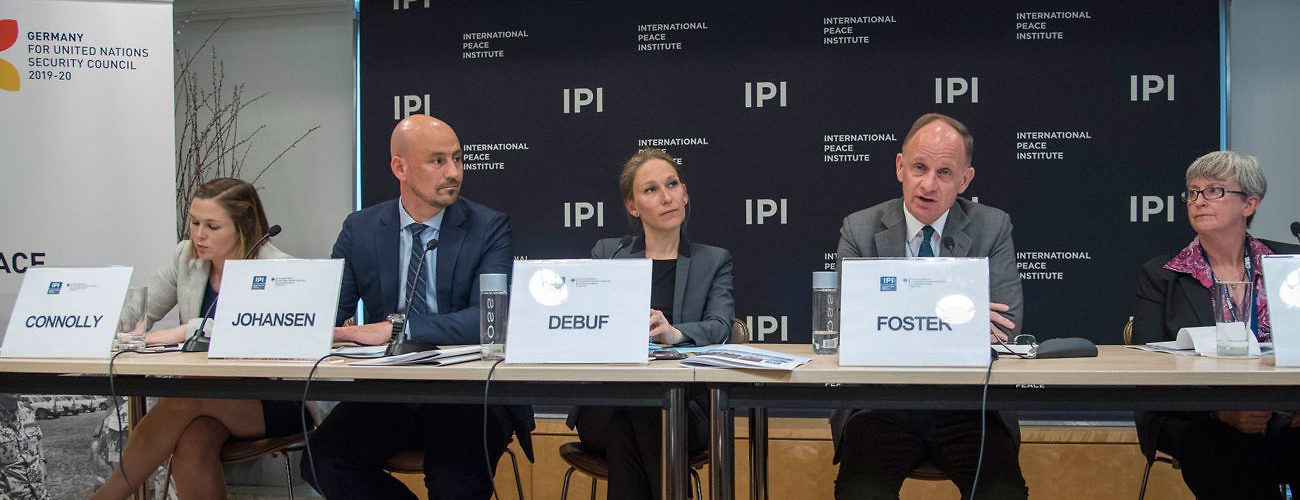“When peacekeepers are being deployed in conflict areas where there is no peace to keep, there is a vital need to consider what reform is needed to ensure that missions are medically fit for purpose,” said Lesley Connolly, co-author of a new IPI report on Medical Support for UN Peace Operations in High-Risk Environments.
Ms. Connolly, a Policy Analyst at IPI, described the need for better coordination of medical support at the level of UN headquarters, while also advocating for the UN to enforce common standards of care, to be met by each country contributing forces to a mission.
Jürgen Schulz, Deputy Permanent Representative of Germany to the UN, had opened the April 12th launch of this report by saying that adequate medical support is “not a niche issue, but a core issue for peacekeeping operations.” Ambassador Schulz’s call was echoed by each speaker on the panel.
Håvard Johansen, co-author of the report and Course Director at the Norwegian Defence International Centre (NODEFIC) asserted that “most UN peacekeepers and soldiers will think twice before taking any risk if they know the likelihood of not being rescued or treated is high.” Consequently, he said, the ability of a mission to achieve its mandate is compromised.
Speaking to the evolving reality for UN peacekeepers, Mr. Johansen noted, “Unlike the old days when you could trust that the UN flag would keep you safe, you may now find yourself increasingly becoming a target.” As such, he argued that medical support units must be equipped to deal with casualties inflicted by hostile actors, and not only cases of illness or accident.
Adrian Foster, speaking of his own experiences in the Democratic Republic of the Congo, endorsed the need for medical support reform proposed in the report. He said, “I realized the medical framework was designed for accident rather than intentional casualties—people out there who wanted to inflict harm on us—and was built for individual rather than mass casualties.”
Major General Foster, Deputy Military Adviser at the UN Department of Peacekeeping Operations, further agreed with a key finding of the report, saying, “In our missions where there is huge risk, adequate medical support has to be at the very forefront of our multi-dimensional planning.” Earlier, Ms. Connolly had similarly argued, “Medical support planning should be included in every aspect of mission planning.”
Jillann Farmer, Director of Medical Services Division (MSD) at the UN, addressed areas for ongoing and future improvement, saying, “Medical support must be iterative and continuous, so that if I have a patient in the ICU, I don’t give them drugs and forget about it. I monitor.”
Dr. Farmer further outlined some steps being taken towards achieving a universal standard of care in the field, including by deploying medical personnel using “a competency-based system, rather than a named-role system.” Dr. Farmer had acknowledged that nurses and paramedics have different skill-sets and competencies depending on where they are trained, leading to discrepancies in quality of care.
Suggesting overlap between the IPI report and developments within the UN, Dr. Farmer noted that the report’s casualty evacuation (CASEVAC) recommendations coincide with a draft policy written in part by MSD, saying, “The document includes most of the things we’ve referenced here, so it’s great to see that there has been a triangulation.”
This panel was co-hosted by the Permanent Mission of Germany to the United Nations.
Els Debuf, IPI Senior Adviser, moderated the discussion.








